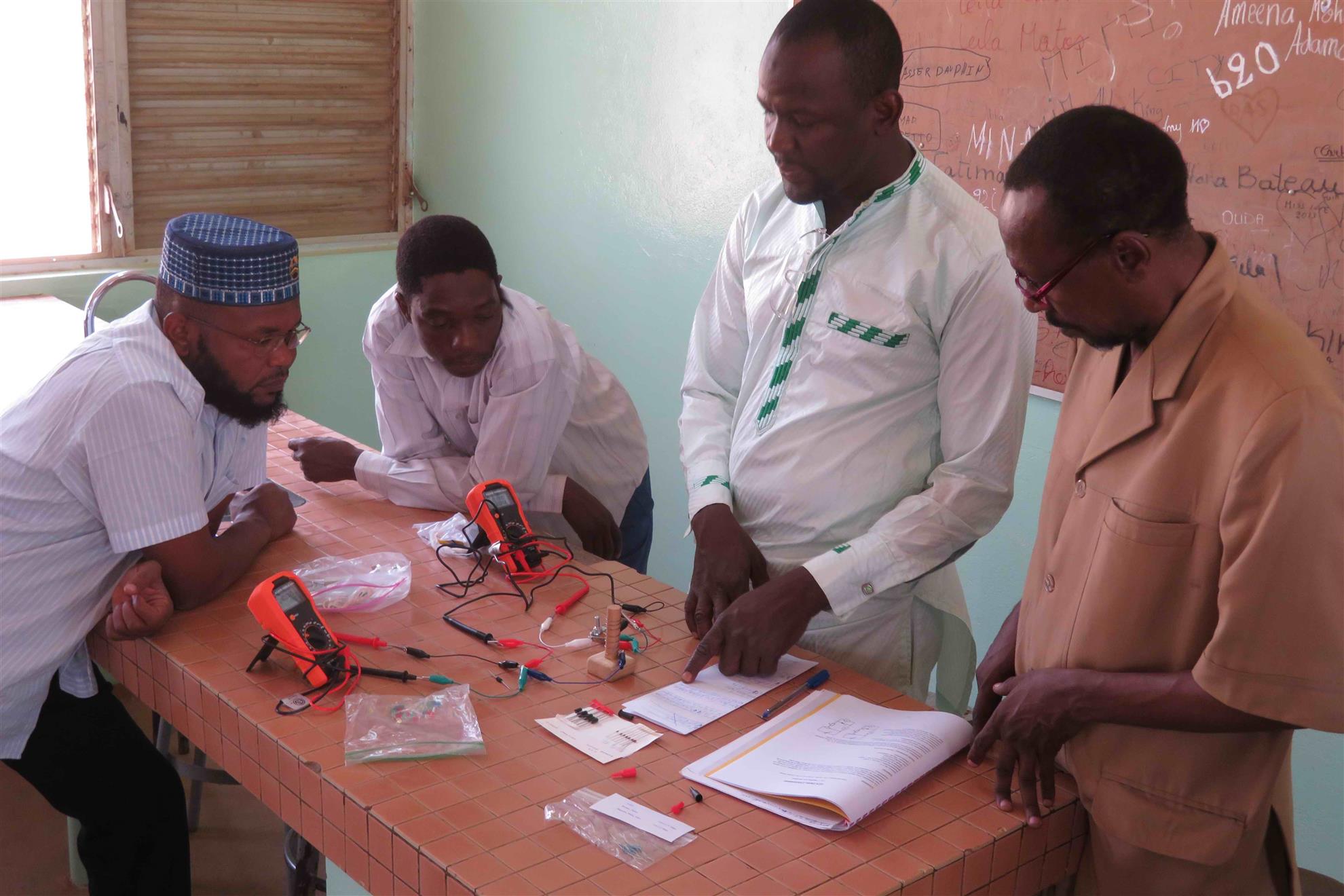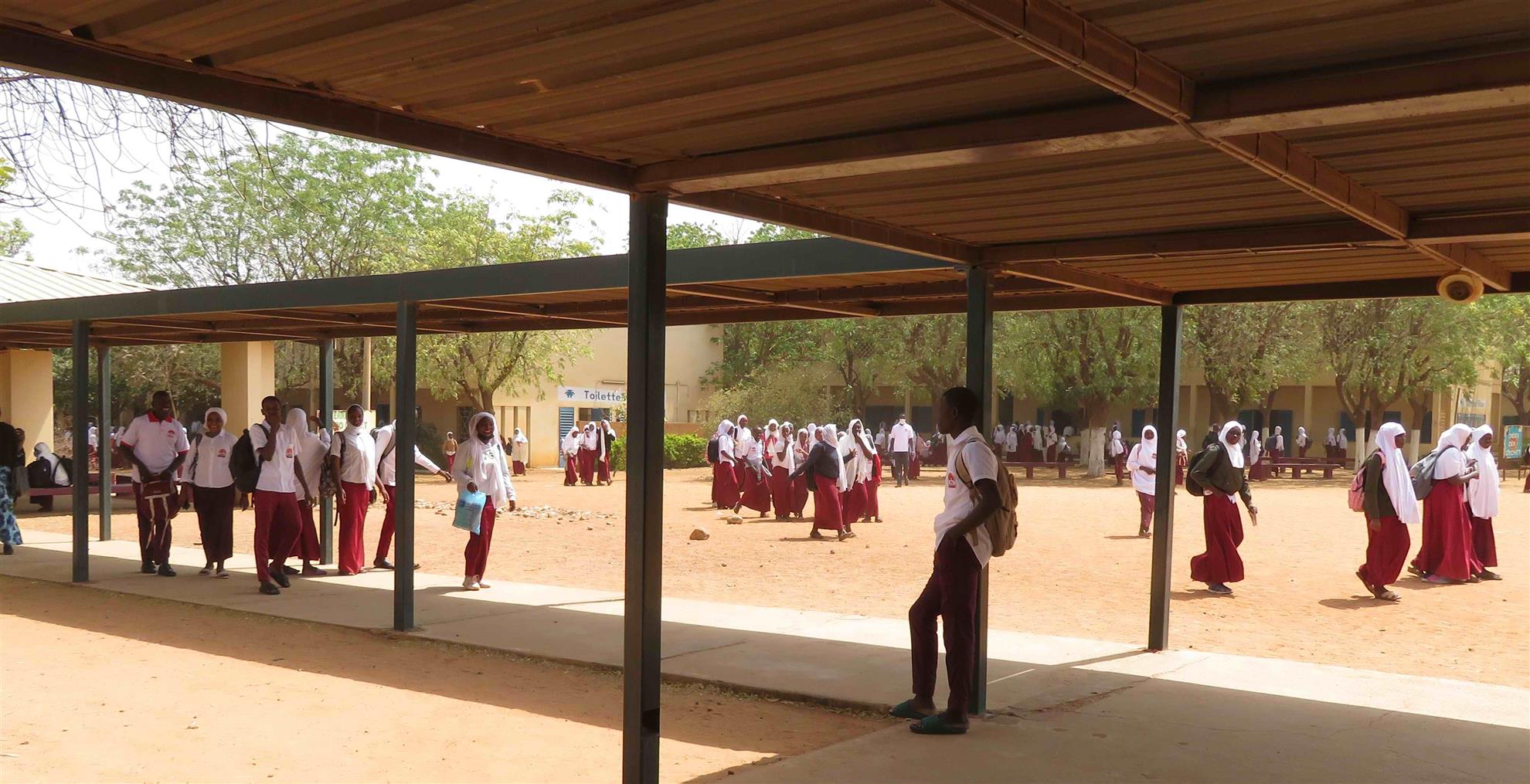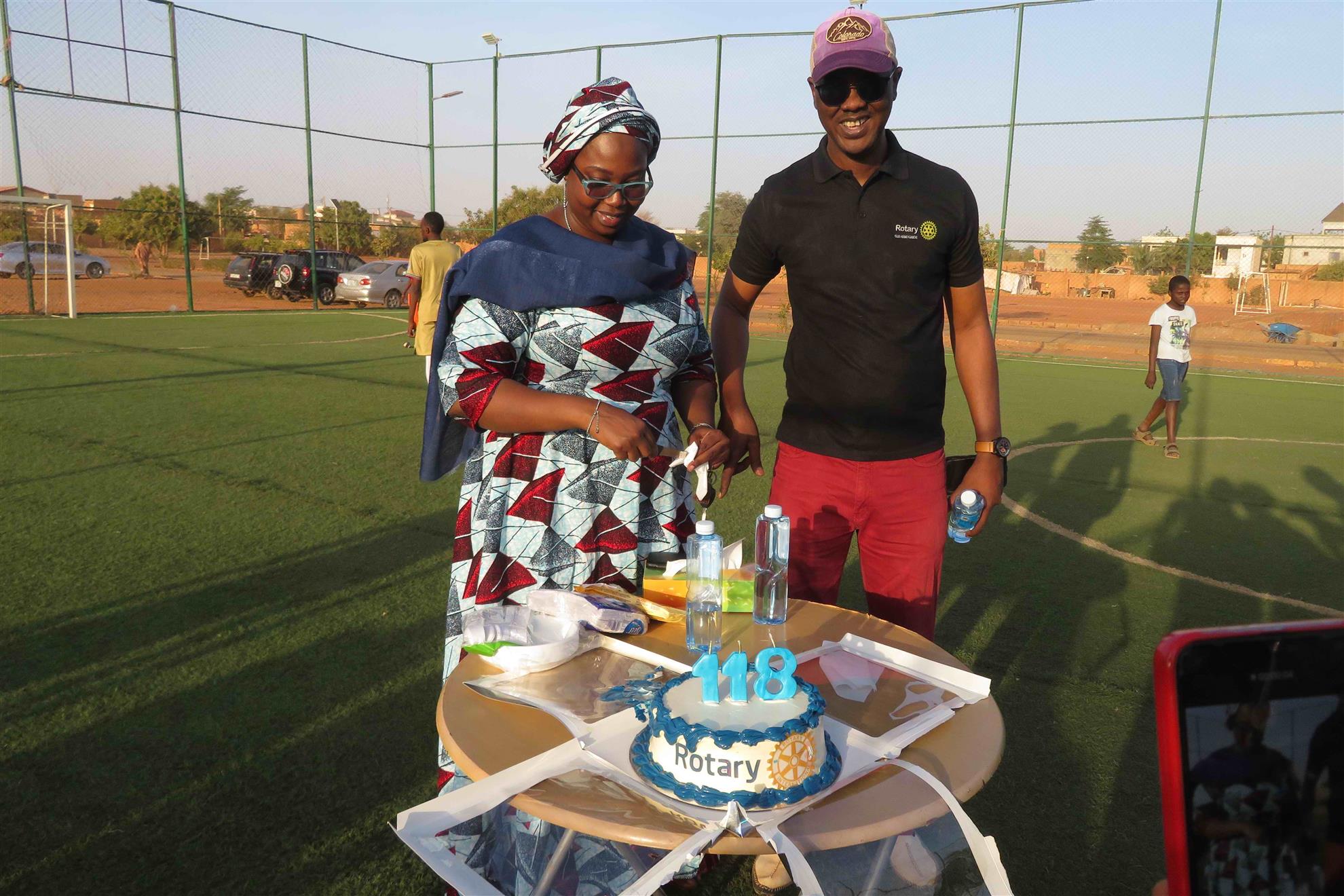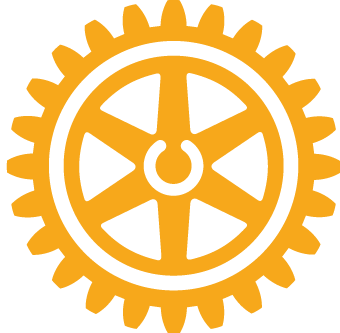
Lead teachers in a high school in Niamey, Niger learn how to use voltmeters to determine the characteristics of resistors, diodes and capacitors.
The Rotary Club of Pagosa Springs is in the final phase of a project to improve science education in six high schools in Niger, Africa. There are nearly 4000 students in these schools, which include the last three years of secondary education. Girls make up 42% of the students.
Niger is a large country that includes much of the Sahara Desert. By most measures of prosperity, Niger as the least developed country in Africa. Yet, many students have set high goals for themselves. They want to become physicians, engineers, airline pilots and teachers. To achieve these goals, these students need access to quality education, including modern science classes.
Poorly developed countries need good science education if they are to lift themselves out of poverty. Niger has little coal, gas or oil, but it has lots of Sahara Desert sunshine. It also has substantial mineral deposits. Developing solar power and mineral assets is a high priority and will require engineers and technicians who understand science.
Although science teachers in Niger understand theory rather well, they have had little or no practical experience. They have not done lab experiments because they have had no lab equipment and no training. They have no lab manuals that describe how to do experiments.
The principal goals of our project is to help the Nigerien teachers develop lab manuals that align with their curriculum, provide supplies that are necessary to perform these experiments, and to train the teachers to perform the experiments. Good lab experiments help students to understand theory, to develop good technical skills and to see how science is connected to their lives.

High school science students use equipment provided by Rotary to study basic electronics
After travelling for 30 hours, I arrived in the capital of Niger, Niamey, with my five suitcases filled with lab supplies. Five Rotarians from our twin partner Rotary Club in Niamey met me at the airport and cleared the way through customs. All projects supported by the Rotary Foundation must have a host club in the country where the project will take place. The host clubs know the needs of their communities and how to best meet these needs
Having completed the first week of teacher training, I attended a physics class in the equivalent of our junior year of high school. There were 50 students, about 15 of which were girls.
There were no text books, so the teacher worked from a blackboard and dictated. The students took meticulous notes. This classroom is different from most physics classrooms in Niger because the teacher had some lab supplies, which had been provided several years ago by our Rotary Club.
The current project, which started three years ago, will cost $60,000. Most of the funding comes from a grant from the Rotary Foundation, which receives its funding from donations from 1.2 million Rotarians in 200 countries. Rotarians volunteering their time increase the value of these grants several fold.
My visit will last three weeks. The first week, which we have just completed, focused on training three lead teachers to do the lab experiments. During the next two weeks, these lead teachers will train an additional 30 science teachers from the six high schools supported by this grant. Each of these schools will have the equipment necessary to perform the lab experiments and teachers who have been trained to perform the experiments.

Celebrating Rotary's 118th Year!!

 Pagosa Springs Rotary Club
Pagosa Springs Rotary Club